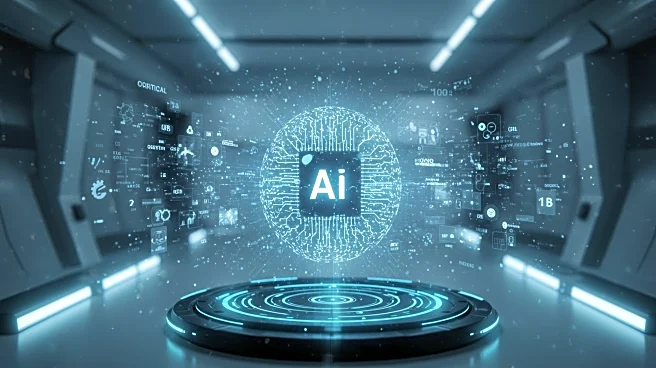What's Happening?
OpenAI has announced updates to its latest AI model, GPT-5, aiming to make it 'warmer and friendlier' following user feedback. The update comes after a rocky launch, with many users expressing a preference for the previous model, GPT-4o. CEO Sam Altman acknowledged the rollout challenges, promising subtle enhancements to improve user interactions. The update includes new interaction phrases like 'Good question' and 'Great start,' reflecting OpenAI's commitment to a more engaging AI experience. The changes are designed to address user complaints and improve the model's approachability.
Why It's Important?
The update to GPT-5 is significant as it highlights the importance of user feedback in AI development. By focusing on a friendlier interaction style, OpenAI aims to increase user satisfaction and engagement globally. This shift could set a new standard for AI interactions, influencing how businesses and individuals use AI tools. Different regions have distinct preferences for AI tone and functionality, with North American users vocal about their preferences, European markets emphasizing collaboration, and Asia-Pacific prioritizing efficiency. The update could impact how AI is integrated into business applications worldwide.
What's Next?
OpenAI's focus on improving user experience suggests ongoing refinements to its AI models. As the company looks beyond GPT-5, future updates may continue to enhance AI friendliness and approachability. The global adoption of AI, especially in business applications, is likely to grow, with OpenAI's updates potentially influencing industry standards. Stakeholders, including businesses and tech developers, may react by adjusting their AI strategies to align with these new interaction standards.
Beyond the Headlines
The emphasis on a friendlier AI interaction style raises ethical and cultural questions about the role of AI in society. As AI becomes more integrated into daily life, the balance between efficiency and human-like interaction becomes crucial. OpenAI's approach may influence how AI is perceived culturally, potentially affecting trust and acceptance of AI technologies.









